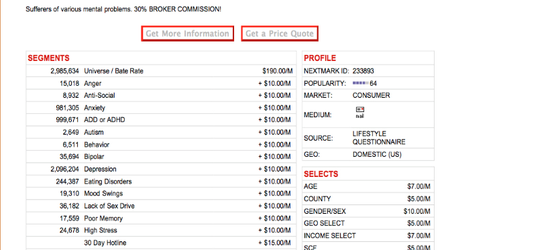News release: Pam Dixon to testify before Congress today
Washington, D.C. -- Pam Dixon will be testifying before the Senate Commerce Committee today at 2:30 pm Eastern. The hearing, held by Senator Rockefeller, focuses on data brokers, what information they are collecting from consumers, and what they are doing with the information. The hearing will take place after a ...

